03:13
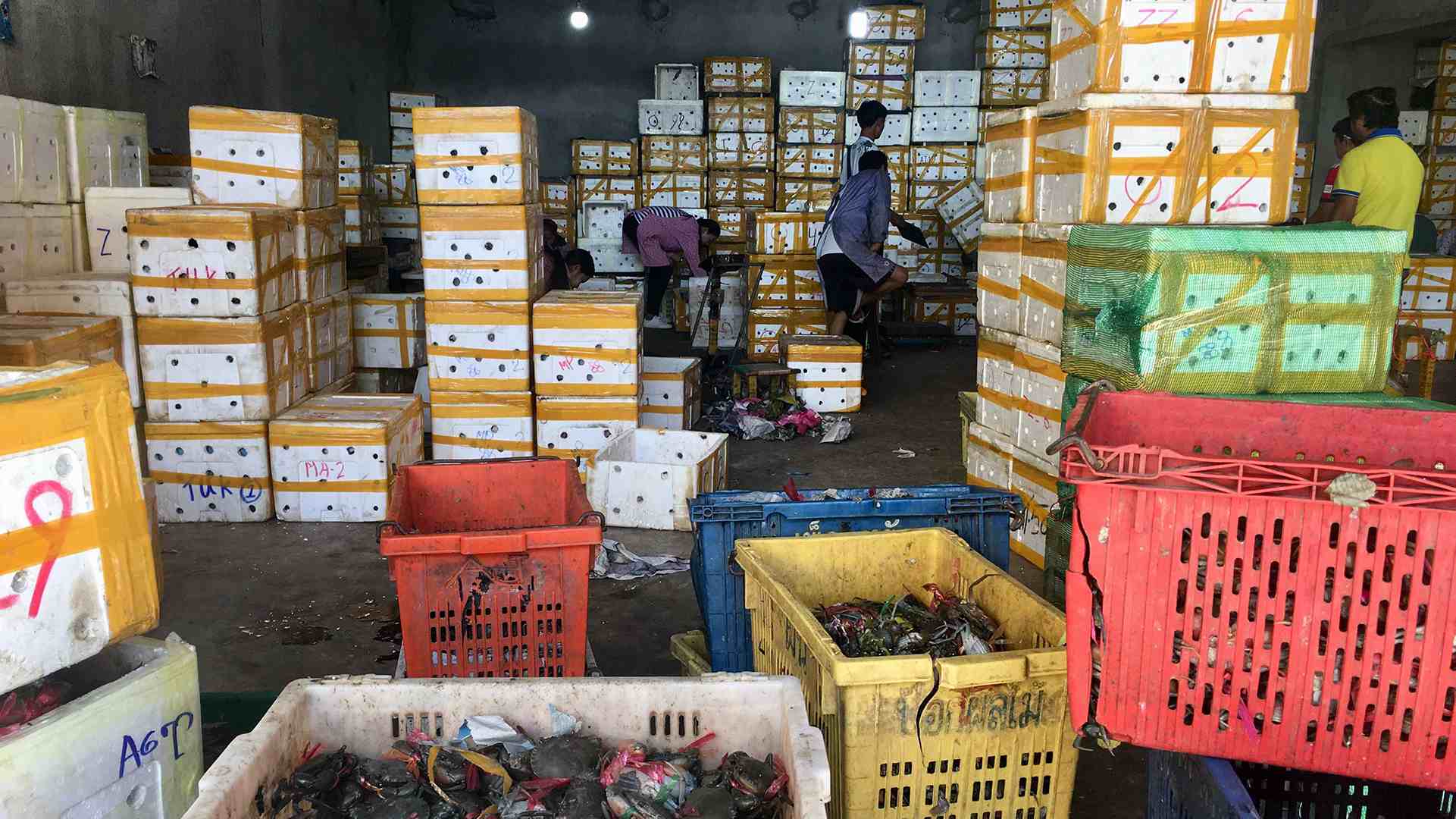
For An Xingjie, each morning is a race against time.
The 32-year-old and his employees have to sort, pack and distribute fresh crabs straight from the Indian Ocean to Chinese cities before noon.
A native of Ruili, China's southwestern border city with Myanmar, An has witnessed the fast growth of the seafood business between the two nations.
Booming China-Myanmar trade
He started his own business about seven years ago, purchasing the crustacean catches from Burmese fishermen and then selling them to restaurants across China.
“When I got into this industry, I remember I only had five employees. Now, I have more than 20 people working for me,” An told CGTN.
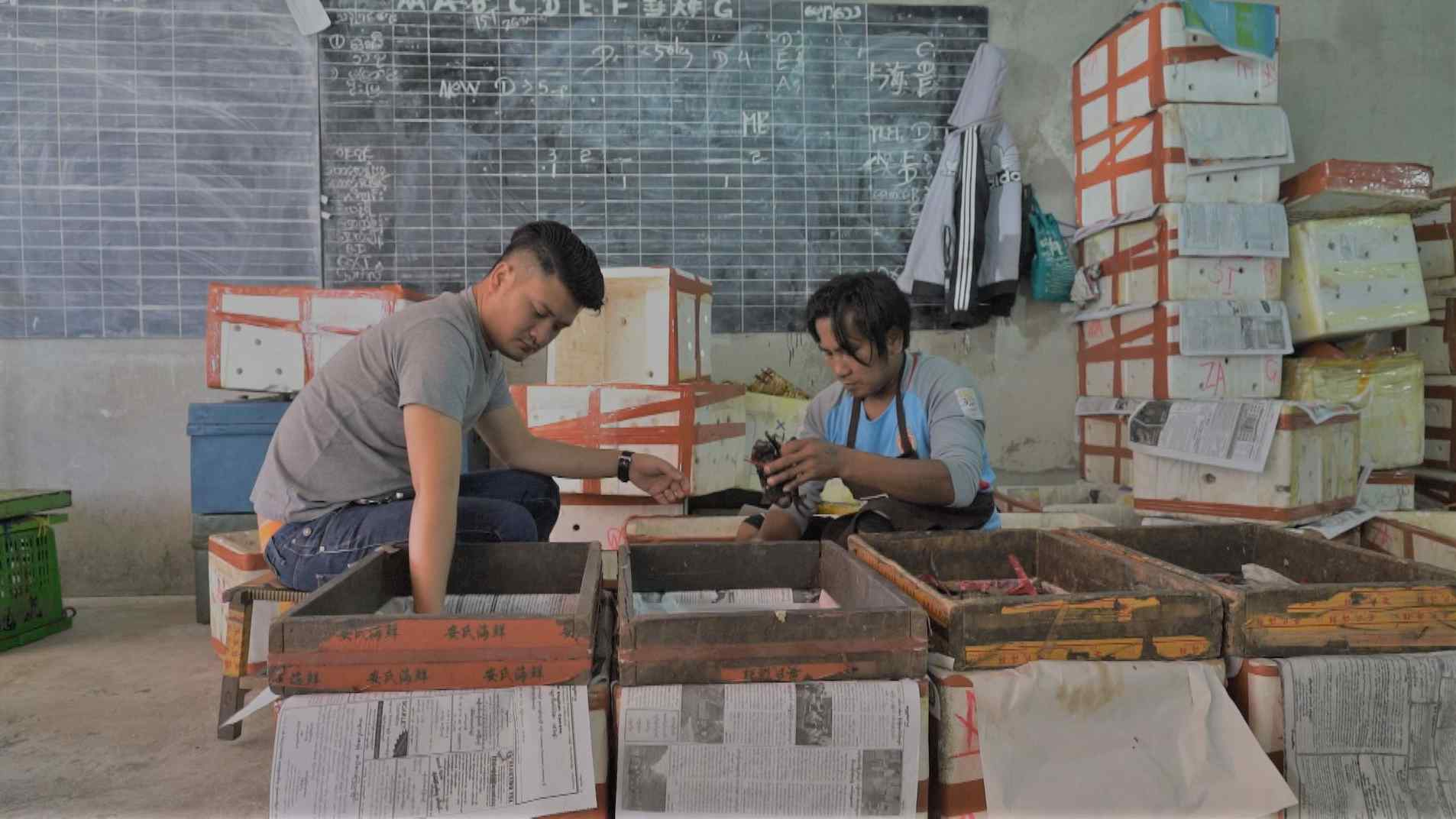
An Xingjie and one of his employees, a Burmese man, sort the crabs straight from the Indian Ocean at a seafood market in Ruili, Yunnan Province. / CGTN Photo
An Xingjie and one of his employees, a Burmese man, sort the crabs straight from the Indian Ocean at a seafood market in Ruili, Yunnan Province. / CGTN Photo
Many of the mostly Burmese workers at the seafood market in the Chinese border town of Wanding have also seen the changes.
“I have worked here for seven years. It's obvious that the market is getting increasingly busy as more and more people are joining in the business,” said Mg Pya Toe.
Data from the Entry-Exit Inspection and Quarantine Bureau of Ruili shows that the seafood imported in 2017 reached 26,000 tons, a year-on-year growth of 106 percent.
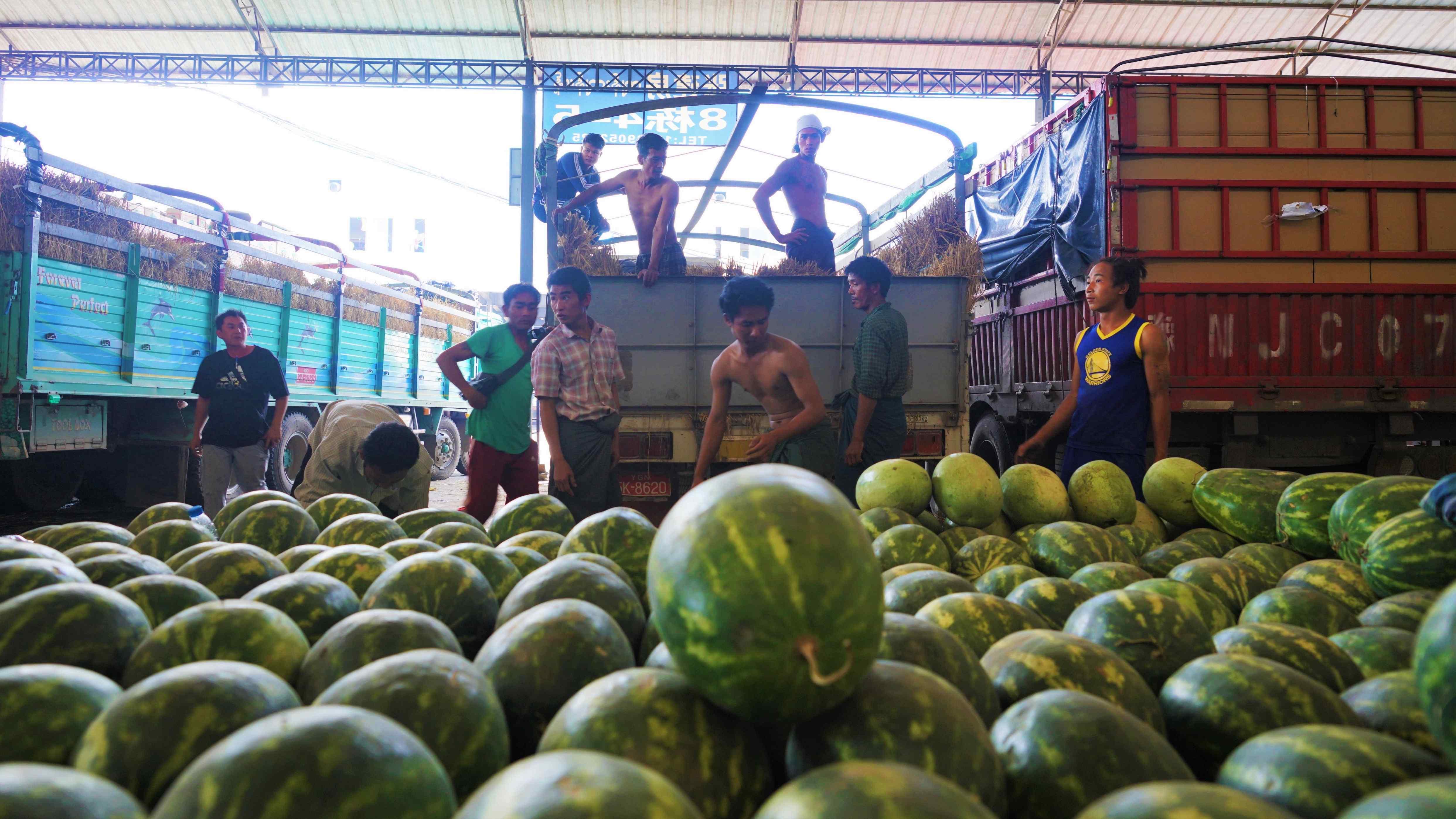
Burmese workers unload watermelons imported from Myanmar at a fruit market in Ruili, Yunnan Province, southwest China. / CGTN Photo
Burmese workers unload watermelons imported from Myanmar at a fruit market in Ruili, Yunnan Province, southwest China. / CGTN Photo
While importing farm produce like seafood and fruit from Myanmar, China also exports many mechanical and electrical products, such as mobile phones and motorcycles, via ports in the city.
The total value of imports and exports through ports in Dehong Dai and Jingpo Autonomous Prefecture reached some 11 billion U.S. dollars in 2018, 67 percent up year on year, according to the prefecture's government.
There are four ports in Dehong, including the national-level ports at Ruili and Wanding.
Remaining challenges
An says there two major advantages for crabs from Myanmar – they are all wild, and relatively cheap as compared to many from other countries.
“Because their vitality is weaker than others,” An said in explaining the reason for their lower market price, which he attributed to the poor transportation infrastructure in Myanmar.
“It takes three days for the crabs to reach here due to the bad road condition. It would be great if transport time could shorten to just two days. An extra day would mean a 10 to 20 percent reduction in the number of crabs that die during transportation. That's a considerable amount for us,” he said.
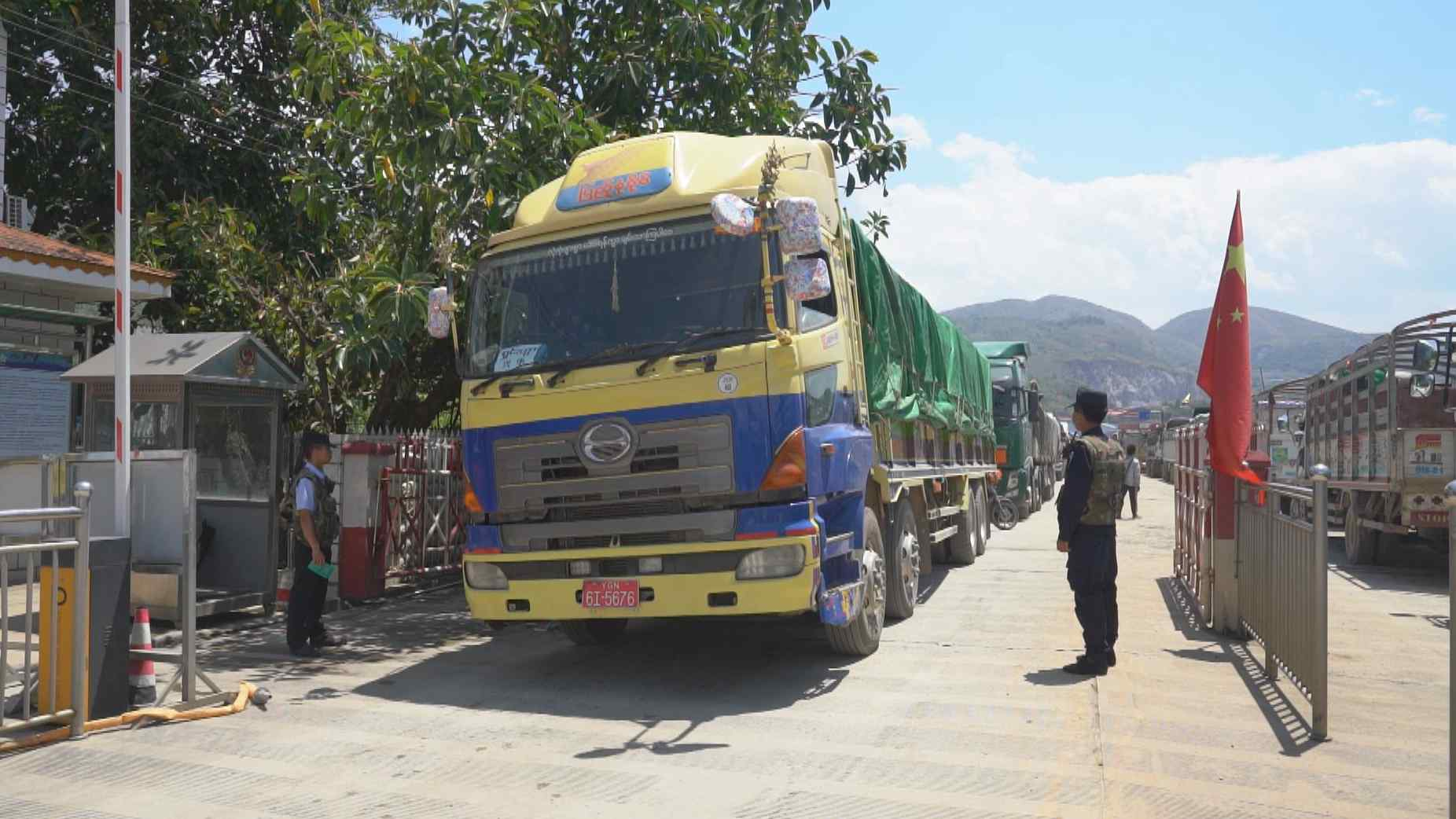
Trucks carrying goods from Myanmar line up to enter China via a border crossing in Ruili, southwest China's Yunnan Province. / CGTN Photo
Trucks carrying goods from Myanmar line up to enter China via a border crossing in Ruili, southwest China's Yunnan Province. / CGTN Photo
Now, as bilateral trade prospers, the road traffic from Mandalay, the second largest city of Myanmar, to its major land port of Muse adjacent to Ruili – is getting much busier, with more congestion seen than ever before.
People engaged in trade in other products including fruit also face mounting pressure.
Fruit from Myanmar occupies a handsome market share in China. During wintertime, more than 80 percent of watermelons on the Chinese market are from this Southeast Asian neighbor, but transportation problems have also brought uncertainty to the growing business from time to time.
Liu Hongfang, manager of a large fruit market near Wanding Port, told CGTN that watermelons can be preserved for about two weeks, and “the longer they are delayed, the more losses the businessmen will suffer.”
Liu added that jolts along the way are also a big challenge for the melons.
Looming hope for change
To address the long-term headache, the two Belt and Road partners are collaborating further.
In September 2018, the two governments signed a memorandum of understanding to jointly build the China-Myanmar Economic Corridor under the Belt and Road Initiative. As an important part of this blueprint, the railway linking the two countries is supposed to play a significant role when completed.
Now, the long-anticipated project has made major breakthroughs. Construction is expected to begin on a major segment within Myanmar that links Muse with Mandalay. The China Railway Eryuan Engineering Group has finished a geological survey of the area and will work out a feasibility analysis before long.
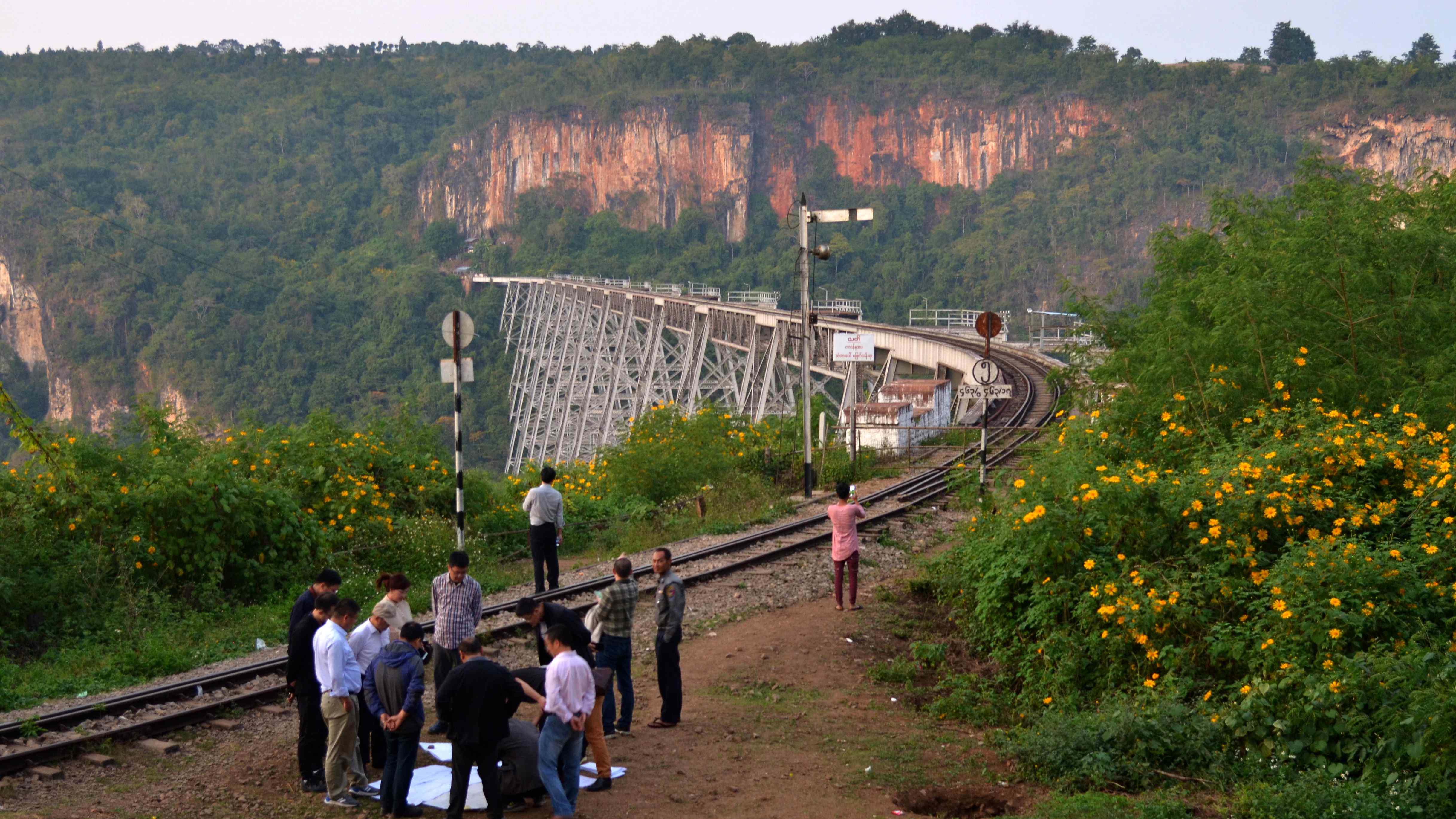
Staff of the China Railway Eryuan Engineering Group and Burmese representatives conduct a geological survey in Myanmar for the feasibility analysis of the Railway linking Muse and Mandalay. /Courtesy of China Railway Eryuan Engineering Group
Staff of the China Railway Eryuan Engineering Group and Burmese representatives conduct a geological survey in Myanmar for the feasibility analysis of the Railway linking Muse and Mandalay. /Courtesy of China Railway Eryuan Engineering Group
Myanmar Minister of Transport and Communication U Thant Sin Maung expressed his support for the project. He said the logistics costs will be largely reduced if the railway can be constructed as planned.
Officials in Dehong have high expectations for the project, which is 431 kilometers long.
“It's estimated that the annual railway freight volume can reach over 17 million tons. Dehong is expected to become China's largest land port by then, and more high-quality goods will reach each other's markets,” said Wei Gang, governor of the prefecture.
On the Chinese side, construction of the section from the city of Dali to Ruili is proceeding and is expected to be completed in 2022.
Meanwhile, the two partners are also planning to establish an economic cooperative area near Ruili and Muse to further boost bilateral trade.
For An, cooperation between the two governments means a lot.
“The Belt and Road initiative will only strengthen the understanding and trust between the two peoples, which in turn, will absolutely help improve the business environment in Myanmar,” he said.






